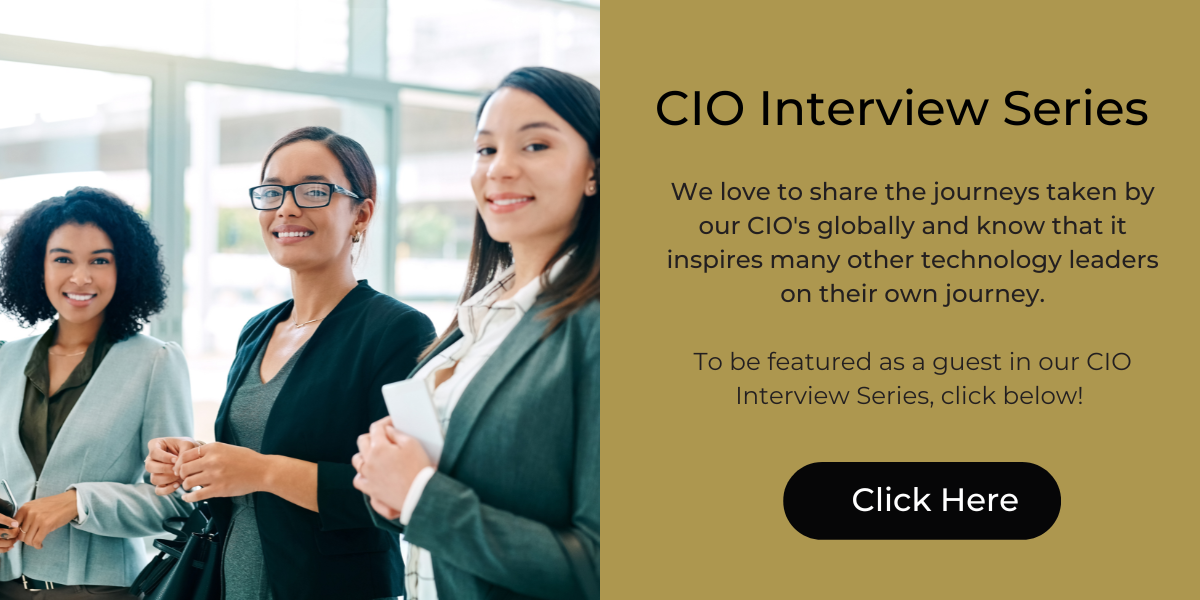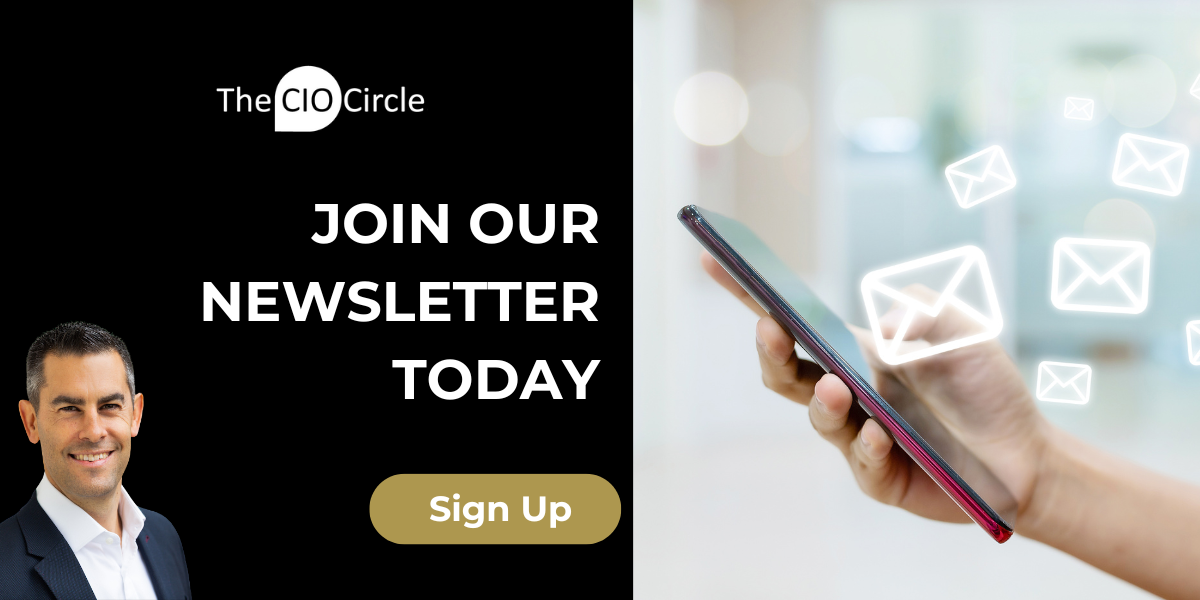MATHEW MALLET
Chief Digital Information Officer at UK Space Agency
Can you please provide a little introduction about yourself
What has your journey to your position been like? What path have you taken?
Eclectic springs to mind. I knew leaving college 30 years ago that ‘computers’ were the future and while working in banking, I applied for any job that appeared in that discipline (usually one or two a month). When achieved, I soon realized if I wanted to move up through management, but it didn’t matter how many extra hours I put in or how hard I worked, opportunities were limited because I did not have a university degree. I decided the route was to keep moving companies.
This means I’ve now worked across multiple sectors and done most technology roles; from operations, to constructing & managing mid-range and mainframes, to building secure telecoms and data networks, delivering desktop rollouts, oh and some coding too.
I feel fortunate to have spent roughly 15 years working for some of the most recognized brand names in the world, leveraging the latest technologies and making billions for shareholders, but I wasn’t satisfied. I knew something was missing. An unexpected call from a recruiter called Steve, said, “Have you heard of Government Digital Services and have you considered working in the Public Sector?” Steve started me down a path I never expected, with opportunities to work with like-minded individuals and support the ethos of the greater good. This has been a far greater reward.
Has it always been your vision to reach the position you’re at? Was your current role part of your vision to become a tech leader?
No, I never thought it would be possible but like any child, I did once want to be an astronaut. However, I didn’t come from the right background. CxO's lofty positions were for upper-middle-class kids who could afford to go to university, had connections, and already had their opportunities mapped out.
Being driven, always learning and a willingness to fail, get up and try again, have been my fundamental drivers. I take every opportunity to challenge the status quo and create better chances for diversity with those around me, so together we can help boost the wider UK economy.
We are truly in the digital age, and this has created more opportunities, across the spectrum than even my younger self could have imagined.
Have you had a role model or mentor that has helped you on your journey?
How do you see the role of the technology leader evolving over the next 5 years?
What skills do you think leaders of the future will need in order to thrive?
First and foremost, adaptable, and approachable, no two days will be the same, expect the unexpected, and be ready to face the unknown, be indomitable.
Pay attention to your EQ and be an excellent listener, always ask, never assume, that they or you know the full answer.
Be passionate. Enjoy your work or the greater goal your work achieves.
Empathy: If you learn to walk in their shoes and understand the challenges, not only does it build trust and a common bond. It enables you to see the bigger picture and create situations where everyone benefits.
How do you keep current with new skills, technologies and personal development?
I love the digital age. Access to information has never been easier, I connect with peers through social and digital channels, work worldwide through video conferencing and attend in person events, to understand wider social and business challenges. I listen to podcasts and Ted talks whilst out walking, undertaking personal development and the flexibility of learning new skills at a time that suits me.
But most importantly I listen and attempt to always stay objective and true to my values; integrity, honesty and being ethical.
What do you see as the next leap in technology that will impact your business or industry in particular?
Wow tough question.
Opportunities in Space are still quite new, and I believe we are on the verge of a whole new economy that by 2050 will cover every industry that exists on Earth. From garbage disposal, removing dead satellites and space debris, through to in space construction, mining and farming.
If I had to pick one area, as a technologist, then the increased use of 3D printers I believe will have the biggest impact. The largest 3D printer is already being used to build the main fuselage of a space rocket. I believe the creation of small satellites, via 3D Printers will become common and ability for future astronauts to build and replace parts in space will become the new norm.
"Understand your role is not all about technology, it is about people."
If you were mentoring a leader of the future, what advice or guidance would you give to help them on their way?
Understand your role is not all about technology, it is about people. Yes leveraging technology to transform your organization is part of your role, however, digital transformation is not taking existing paper-based processes and making them electronic. That’s all we have really seen during the pandemic.
Your role is promoting an outcome-focused approach and a culture focused on innovation where all staff are allowed to make mistakes, learn, adapt, evolve. Fostering growth, ultimately promoting business wider transformation and an evolving target operating model based on OKRs rather than KPIs. This is the way we have always done it, is a phrase best left in the past.
Is there anything in particular that you would still like to achieve in your career or what is the next step on your journey?
If you could change one thing in the world, what would it be?
A big thank you to Mathew Mallet from UK Space Agency for sharing his journey to date.
If you would like to gain more perspective from Tech Leaders and CIOs you can read some of our other interviews here.
September 2, 2022


